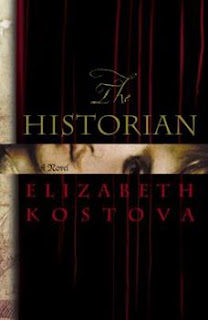20 Books I Would Recommend Reading, 5 Books I Wouldn't, and 50 from my Reading List
As we start to come out of winter, days are getting longer and warmer. Your results may vary, but whether you're reading curled up under a blanket or sitting in the park, it's always time for another Books List post!
My likes/loves: These are books that entertained me, moved me, taught me things, made me think, inspired me, and that I would heartily recommend. They are not ranked – they are merely in the order in which I read them.
I have written reviews for several of these, for which I will include links within the list, if you are interested in getting more of an in-depth (but spoiler-free) look at the books and my impression of them.
The Last Days of Dogtown – Anita Diamant
3rd Degree – James Patterson and Andrew Gross
Step on a Crack – James Patterson and Michael Ledwidge
Rape: A Love Story – Joyce Carol Oates
Uncollected Stories – Kate Chopin
You've Been Warned – James Patterson and Howard Roughan
Death Comes for the Archbishop – Willa Cather
The Complete Idiot's Guide to Green Living – Trish Riley
The Worst Thing I've Done – Ursula Hegi
The Power and the Glory – Graham Greene
A Short History of Nearly Everything – Bill Bryson
Duma Key – Stephen King
Here's my review of Duma Key: https://bucketofuseful.blogspot.com/2022/02/review-of-duma-key-by-stephen-king.html
The Historian – Elizabeth Kostova
Here's my review of The Historian: https://bucketofuseful.blogspot.com/2022/02/review-of-historian-by-elizabeth-kostova.html
Dali – Paul Moorhouse
Prodigal Summer – Barbara Kingsolver
Here's my review of Prodigal Summer: https://bucketofuseful.blogspot.com/2022/02/review-of-prodigal-summer-by-barbara.html
Dexter in the Dark – Jeff Lindsay
Here's my review of Dexter in the Dark: https://bucketofuseful.blogspot.com/2022/01/review-of-dexter-in-dark-by-jeff-lindsay.html
Almost Green: How I Saved 1/6th of a Biliionth of the Planet – James Glave
Here's my review of Almost Green: https://bucketofuseful.blogspot.com/2016/04/review-of-almost-green-how-i-saved-16th.html
Unless – Carol Shields
Here's my review of Unless: https://bucketofuseful.blogspot.com/2022/02/review-of-unless-novel-by-carol-shields.html
Seven Wild Sisters – Charles de Lint
Promises to Keep – Charles de Lint
My meh/yuck list: Did not find these appealing for any number of reasons – some were boring; some had an interesting subject but did not do it justice; some were flat-out terrible. All simply left me cold in some way. Although I am likely to read multiple books by authors I like (you will see a lot of Dean Koontz, Jonathan Kellerman, Margaret Atwood, Charles de Lint and Toni Morrison), I do not excuse those authors when they write a book I didn't like, so they might just show up here, as well.
A Night in Acadie – Kate Chopin
A Lost Lady – Willa Cather
The Awakening – Kate Chopin
The Professor's House – Willa Cather
Lord Jim – Joseph Conrad
My Reading List: these are books I haven't read yet, so I don't have a reaction for you. However, I could semi-recommend them, based on the reasons they made it onto my list:
They were on one of those “100 Greatest Books” lists;
They are other books written by authors I really enjoy; or
I read a review, and it sounded like something I'd like.
#1 can be a bit hit-or-miss; #2 is almost (but not always) foolproof for me (but maybe not for you), and #3 usually works out pretty well, as it's a combination of the first two. As always, your results may vary, but consider them suggestions. These may tend to come in chunks of stuff by author (apologies).
Absolute Beginners – Colin MacInnes
Ada – Vladimir Nabokov
Adam Bede – George Eliot
Adjunct: An Undigest – Peter Manson
Aesop's Fables – Aesopus
After the Death of Don Juan – Sylvia T. Warner
After the Ice: A Global Human History, 20,000-5000 BC - Steven Mithen
After the Quake – Haruki Murakami
Against the Grain – Joris-Karl Huysmans
Agnes Grey – Anne Bronte
Aithiopika – Heliodorus
Albert Angelo – B.S. Johnson
Alias Grace – Margaret Atwood
Alice's Adventures in Wonderland – Lewis Carroll
All About H. Hatterr – G.V. Desani
All Quiet on the Western Front – Erich Remarque
All Souls Day – Cees Nooteboom
Amateurs – Donald Barthelme
Amelia – Henry Fielding
American Gods – Neil Gaiman
Amerika – Franz Kafka
Amok – Stefan Zweig
Amongst Women – John McGahern
Amsterdam – Ian McEwan
An Anthropologist on Mars – Oliver Sacks
An Artist of the Floating World – Kazuo Ishiguro
An Obedient Father – Akhil Sharma
Anagrams – Lorrie Moore
Anna Karenina – Leo Tolstoy
Another Bullshit Night in Suck City – Nick Flynn
Another World – Pat Barker
Anthem – Ayn Rand
Antic Hay – Aldous Huxley
Arcadia – Jim Crace
Arcanum 17 – Andre Breton
Ariel – Lawrence Block
Around the World in 80 Days – Jules Verne
Arrow of God – Chinua Achebe
As If I Am Not There – Slavenka Drakulic
Asphodel – H.D. (Hilda Doolittle)
At Swim, Two Boys – Jamie O'Neill
August is a Wicked Month – Edna O'Brien
Austerlitz – W.G. Sebald
Auto-Da-Fe – Elias Canett
Autumn of the Patriarch – Gabriel Garcia Marquez
Back – Henry Green
Battlefield Earth – L. Ron Hubbard
Bel-Ami – Guy de Maupassant
Belle de Seigneur – Albert Cohen
Ben-Hur – Lew Wallace
That's all for now; hope you find these lists useful as you think about things you might like to read.
In case you missed any, here are the other books lists:
https://bucketofuseful.blogspot.com/2020/03/the-books-list-part-one.html
https://bucketofuseful.blogspot.com/2020/04/the-books-list-part-two.html
https://bucketofuseful.blogspot.com/2020/05/the-books-list-part-three.html
https://bucketofuseful.blogspot.com/2020/05/the-books-list-part-four.html
https://bucketofuseful.blogspot.com/2020/09/the-books-list-part-five.html
https://bucketofuseful.blogspot.com/2020/11/the-books-list-part-six.html
https://bucketofuseful.blogspot.com/2021/05/the-books-list-part-seven.html
https://bucketofuseful.blogspot.com/2021/12/the-books-list-part-eight.html
Image from Pexels https://www.pexels.com/photo/green-plant-on-white-ceramic-pot-4153146/





